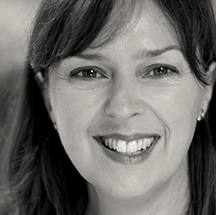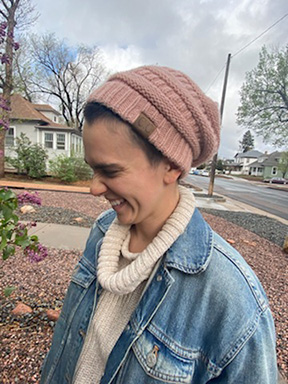The other night, I walked outside with Libs for her last business meeting. It’s around 11:00 and there is a distinct chill in the air. Though the moon is peeking through the tree canopy and a light shines from my screened-in porch, it’s dark and my eyes have not yet adjusted to the shapes in my yard.
The Unexpected
The other night, I walked outside with Libs for her last business meeting. It’s around 11:00 and there is a distinct chill in the air. Though the moon is peeking through the tree canopy and a light shines from my screened-in porch, it’s dark and my eyes have not yet adjusted to the shapes in my yard.
Banned Books Week - Books Unite Us, Censorship Divides Us
Recently, a fellow writer posted about a new banned book list on Twitter. I know it isn’t how I’m supposed to approach a banned books list, because banning is dreadful. It keeps books out of the hands of young readers who may benefit from that book.
Interview with Dawn McCaig: Spring Flash Fiction Runner Up
Dawn McCaig is an Assistant Crown Attorney who prosecutes all manner of serious crime. She escapes the stress of her professional life by writing fiction. She lives in Nipissing District, Ontario, Canada.
If you haven't read her story, "In Bloom," take a moment to do so and then come back to learn about how she writes.
------interview by Sue Bradford Edwards------
WOW: “In Bloom” is such a chilling piece. What was the inspiration behind this story?
Dawn: My work as a criminal prosecutor has definitely influenced my writing. I’ve never had a case with a body buried under the front shrubs, but I do deal with chilling fact patterns, including homicides, on a regular basis. My professional life is very satisfying, but it immerses me in the worst the world has to offer, so I’m not surprised my imagination treads dark waters.
WOW: Your work definitely seems to fuel your writing. Revision is a vital part of the writing process. How did “In Bloom” change from the first draft to the last?
Dawn: The first draft of the story had looser language; it was too « flowery. » I cut around 100 words, and when I read it now I still see 10 more I probably should have tossed.
WOW: Because it is so short, many details don’t make it into a flash fiction story. We don’t know, for example, this history of Miranda and Nigel’s marriage. How did you decide which details to include in the story?
Dawn: The word limit made me a vicious editor; if something didn’t further the plot or theme I (hopefully) deleted it. I left most of the details of the marital disputes out to create some moral ambiguity - should Miranda have killed Nigel? Did he deserve it? From her perspective, yes to both, but we’ll never really know.
WOW: Individual words in your story, including exhume, bone-white, and sinew, help create the dark tone. What advice do you have for our readers about using word-choice to create a mood?
Dawn: I’m not sure I have a lot of advice to offer, but I do think it’s good practice to figure out the mood you want to evoke with your work, and to sit in that mindset for a few minutes before you start drafting.
For this story, I reached for language that describes graveyards and corpses because they provoke feelings of darkness and unease.
WOW: What are your writing plans for the future? Can you tell our readers where else they can see your work?
Dawn: Confession: I love writing fiction, but I have only just started letting other people read it. This is my first published piece and I am beyond delighted. I do have a draft of a novel nearly finished, so we’ll see what becomes of it. It’s a courtroom murder mystery, of course.
WOW: Good luck finalizing the draft of your novel! Murder and a mystery seem to be right up your alley.
Interview with Betsy Armstrong, Runner Up in the WOW! Q3 2021 Creative Nonfiction Essay Contest
Picture Betsy Armstrong’s career path as a winding road that began in corporate sales, led to sports marketing and non-profit executive work with a detour into motherhood, and culminated in claiming both “writer” and “intuitive eating counselor” as her current job descriptions. She holds a BS in Food Science from the University of Minnesota and an MS in Counseling from National Louis University. Betsy usually writes at the intersection of food, exercise, and psychology, but also pens stories about her kids, husband, and pets. Her writing has been recognized in personal essay contests from Writer’s Digest and WOW-Women On Writing. Betsy finished her first memoir, "The Mother of All Decisions," about how early mother loss created her ambivalence around children, but ultimately resulted in adopting two, older Russian siblings at the ripe age of 49. When Betsy isn’t writing, you can find her hanging with her family in nature, dancing with pompoms, and making a superb apple pie. Visit her website at www.betsyarmstrong.com.
How I Started Writing Cozy Mini Mysteries for Woman’s World (and Published a Book)
As a diversion from my own writing, I began submitting stories to WW. In February 2019, they accepted “Deadly Misstep,” followed a month later by “Mother’s Day Charm.” The 550-word limit, including the solution, helped hone my editing skills.
What’s the appeal?
What elements characterize cozy mini mysteries?
Is there a formula or structure?
What’s unacceptable?
Are cozy mysteries easy to write?
What are some writing pitfalls?
In addition to Woman’s World, Loretta’s fiction has appeared in Every Writer, Short Fiction Break, and Oyster River Pages. Her lifestyle articles and advertorials have been published in regional press. “The Birthmark” received honorable mention in WOW’s Spring 2021 Flash Fiction contest. If you haven’t already, check out her book on Amazon. Visit her website at wordygirly.com.
Everything (Including Writing) Is Better With a Pumpkin Spice Latte
Do you ever wonder if when you pull out your laptop at your favorite coffee shop, the baristas think, Oh wow! I wonder what she's writing? Or is it more like, How long is she going to be sitting there? I hope she knows we close early tonight. It doesn't really matter as long as you go on to step two.
3. Order the pumpkin spice latte with almond milk.
The first sip of the pumpkin spice latte goes through my body almost like a jolt of electricity. It wakes up my senses: the smell of fall when I bring the cup to my lips and the tingling on my tongue from the hot, sweet drink. There's always a smile on my face when I whisper, "Oh, that is so good."
Margo L. Dill is a writer, teacher, editor, and publisher, living in St. Louis, MO. Consider taking her next Writing for Middle Grade and Young Adult Readers class that starts on Wednesday, October 6, which is on sale this fall for $50 off! And of course, you can drink a pumpkin spice latte anytime you want during the class.
Three Things You May Not Know About Being a Freelance Editor
 |
| Photo by cottonbro from Pexels |
As my day job, I work as a freelance magazine editor for a regional lifestyle magazine. When I chat with my non-writer friends about the responsibilities of the job, they are usually surprised to learn that I do more than write articles, compile calendar events, and edit the other articles writers turn in. For any writers out there who are considering applying or accepting jobs in this realm, I thought I’d share a few tidbits about the other aspects of this type of writing/editing job.
Interview with Adele Evershed: Spring 2021 Flash Fiction Contest Third Place Winner
Odyssey of Love Blog Tour & Giveaway
We're back again with another blog tour! Today I'm excited to introduce you to Odyssey of Love: A Memoir of Seeking and Finding by author Linda Jämsén.
Interview with Sophia Joan: Q3 2021 CNF Essay Contest Third Place Winner
Friday Speak Out!: Prompted
What role do prompts play in your writing practice?
* * *
Linda Petrucelli is a writer obsessed with short form fiction and CNF. Her latest essays appear in Sky Island Journal, Pollux, and Barren Magazine. Her flash memoir, “Omphilomancy,” is found in Permafrost 43.1. She is also runner up in the Santa Clara Review 2021 Flash Non-fiction Contest. Linda lives on the Big Island of Hawaii where she writes and shares a lanai with one husband and ten cats. For more about Linda, browse: https://lindapetrucelli.com
~~~~~~~~~~~~~~~~~~~~~~~~~~~~~~~~~~~~~~~~~~~~
Would you like to participate in Friday "Speak Out!"? Email your short posts (under 500 words) about women and writing to: marcia[at]wow-womenonwriting[dot]com for consideration. We look forward to hearing from you!
~~~~~~~~~~~~~~~~~~~~~~~~~~~~~~~~~~~~~~~~~~~~



























